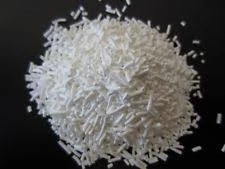
e220 food additive
Understanding E220 Sodium Sulfite as a Food Additive
In the realm of food additives, E220, known as sodium sulfite, plays a pivotal role in various culinary applications. Sodium sulfite, a white crystalline powder, is a versatile compound used primarily as a preservative and antioxidant in food products. It is primarily recognized for its ability to prevent browning in fruits and vegetables and for its effectiveness in inhibiting the growth of unwanted microorganisms.
Origins and Chemical Properties
Sodium sulfite is derived from sulfur dioxide, a gas that is commonly used in various industries, including winemaking. When dissolved in water, sodium sulfite dissociates into sodium ions and sulfite ions. One of its key characteristics is its capacity to act as a reducing agent, making it particularly useful in preventing oxidative reactions that can spoil food. This property is essential for products that are prone to discoloration or degradation, particularly when exposed to air.
Applications in Food Industry
The primary application of E220 in the food industry is as a preservative. It is commonly used in the production of dried fruits, where it helps to maintain color and prevents the enzymatic browning that can occur when fruits are exposed to oxygen. For instance, dried apricots and raisins often contain sodium sulfite to retain their vibrant colors and prolong shelf life. Additionally, E220 is frequently utilized in the winemaking process to inhibit the growth of wild yeasts and bacteria, ensuring a cleaner fermentation process and preserving the wine’s intended flavors.
Sodium sulfite is also found in processed foods, including pre-packaged salads, sauces, and even some bakery products. Its antioxidant properties make it an attractive option for manufacturers aiming to enhance the shelf life and appearance of their offerings.
e220 food additive

Safety and Regulatory Aspects
The use of sodium sulfite in food is regulated by various health and safety organizations worldwide. In the European Union, for example, E220 is listed as an approved additive, subject to specific usage limits. The acceptable daily intake (ADI) is established to ensure that consumption levels remain safe for human health. The United States Food and Drug Administration (FDA) also recognizes sodium sulfite as generally recognized as safe (GRAS) when used within specified limits.
While sodium sulfite is considered safe for the general population, some individuals may experience adverse reactions. This is particularly true for those with sulfite sensitivities, which can lead to symptoms such as headaches, asthma attacks, or gastrointestinal distress. As a result, food products containing E220 are required to be labeled appropriately to inform consumers.
Environmental Considerations
Beyond its application in food preservation, sodium sulfite also has environmental implications. While it is a useful compound, improper disposal or oversaturation in soil and water can lead to adverse ecological effects. Therefore, industries that use sodium sulfite are encouraged to comply with environmental regulations to minimize any potential harm to ecosystems.
Conclusion
E220, or sodium sulfite, is a widely used food additive with a range of applications, from preserving the color and freshness of dried fruits to its indispensable role in winemaking. While it is an effective additive that contributes to food safety and quality, it is crucial for consumers to be aware of its presence in various food products, especially those with a sensitivity to sulfites. As the food industry continues to innovate, understanding the role and implications of food additives like sodium sulfite remains vital in making informed dietary choices. Overall, E220 serves as a reminder of the delicate balance between food preservation and consumer health, highlighting the importance of regulation and transparent labeling in ensuring food safety.
-
Pure Sodium Dichloroisocyanurate Dihydrate | Powerful DisinfectantNewsAug.29,2025
-
Industrial Chemicals: Quality & Purity for Every IndustryNewsAug.28,2025
-
Nitrile Rubber Honoring Strict Production StandardsNewsAug.22,2025
-
Aspartame Ingredients Honoring Food Safety ValuesNewsAug.22,2025
-
Fertilizer for Balanced Plant NutritionNewsAug.22,2025
-
Cyanide Gold Processing with High Purity AdditivesNewsAug.22,2025
-
Formic Acid in Textile Dyeing ApplicationsNewsAug.22,2025
Hebei Tenger Chemical Technology Co., Ltd. focuses on the chemical industry and is committed to the export service of chemical raw materials.
-

view more DiethanolisopropanolamineIn the ever-growing field of chemical solutions, diethanolisopropanolamine (DEIPA) stands out as a versatile and important compound. Due to its unique chemical structure and properties, DEIPA is of interest to various industries including construction, personal care, and agriculture. -

view more TriisopropanolamineTriisopropanolamine (TIPA) alkanol amine substance, is a kind of alcohol amine compound with amino and alcohol hydroxyl, and because of its molecules contains both amino and hydroxyl. -

view more Tetramethyl Thiuram DisulfideTetramethyl thiuram disulfide, also known as TMTD, is a white to light-yellow powder with a distinct sulfur-like odor. It is soluble in organic solvents such as benzene, acetone, and ethyl acetate, making it highly versatile for use in different formulations. TMTD is known for its excellent vulcanization acceleration properties, which makes it a key ingredient in the production of rubber products. Additionally, it acts as an effective fungicide and bactericide, making it valuable in agricultural applications. Its high purity and stability ensure consistent performance, making it a preferred choice for manufacturers across various industries.





